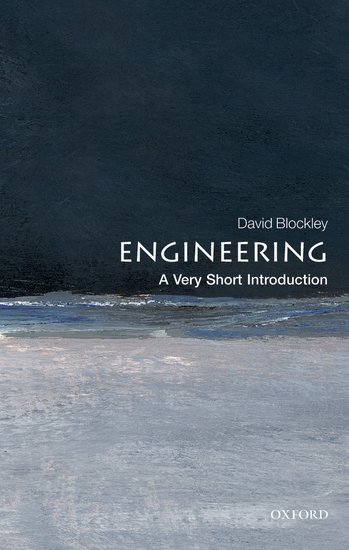Home >
A Very Short Introduction >
Russian History (Technology & Engineering)
A Very Short Introduction | Technology & Engineering
Russian History
ISBN: 9780199578696
Series: A Very Short Introduction
Russian History (Technology & Engineering)
A Very Short Introduction Russian History (Technology & Engineering) Media > Books > Non-Fiction > Education Books Expect Delays of Up to 4 Weeks| Order Below |
ISBN
9780199578696 (10-digit ISBN: 0199578699)
- Description
- Key Features
- Series Description
- Table of Contents
- Examines Russian history in an impartial way, arguing that 'Good Russia' and 'Bad Russia' are one and the same
- Puts into context the difficulties Russia faces in terms of the size of its territory, its ability to rule the masses, its diverse population, and its harsh and vulnerable environment
- Gives attention to the important individuals in Russian history; from Peter the Great and Catherine II to Lenin and Stalin
- Considers Russia's relationship with the West and Europe
- Examines the Soviet experience and the post-Soviet era
Spanning the divide between Europe and Asia, Russia is a multi-ethnic empire with a huge territory, strategically placed and abundantly provided with natural resources. But Russia's territory has a harsh climate, is cut off from most maritime contact with the outside world, and has open and vulnerable land frontiers. It has therefore had to devote much of its wealth to the armed forces, and the sheer size of the empire has made it difficult to mobilise resources and to govern effectively, especially given the diversity of its people. In this Very Short Introduction, Geoffrey Hosking discusses all aspects of Russian history, from the struggle by the state to control society, the transformation of the empire into a multi-ethnic empire, Russia's relationship with the West/Europe, the Soviet experience, and the post-Soviet era.
Oxford's Very Short Introductions series offers concise and original introductions to a wide range of subjects--from Islam to Sociology, Politics to Classics, Literary Theory to History, and Archaeology to the Bible.
Not simply a textbook of definitions, each volume in this series provides trenchant and provocative--yet always balanced and complete--discussions of the central issues in a given discipline or field. Every Very Short Introduction gives a readable evolution of the subject in question, demonstrating how the subject has developed and how it has influenced society. Eventually, the series will encompass every major academic discipline, offering all students an accessible and abundant reference library.
Whatever the area of study that one deems important or appealing, whatever the topic that fascinates the general reader, the Very Short Introductions series has a handy and affordable guide that will likely prove indispensable.
Please note: As this series is not ELT material, these titles are not subject to discount.
Introduction
1: Kievan Rus and the Mongols
2: The Formation of the Muscovite state
3: The Russian Empire and Europe
4: The Responsibilities and dangers of Empire
5: Reform and revolution
6: The Soviet Union's turbulent rise
7: The Soviet Union: triumph, decline and fall
Chronology
Further Reading
Glossary
Spanning the divide between Europe and Asia, Russia is a multi-ethnic empire with a huge territory, strategically placed and abundantly provided with natural resources. But Russia's territory has a harsh climate, is cut off from most maritime contact with the outside world, and has open and vulnerable land frontiers. It has therefore had to devote much of its wealth to the armed forces, and the sheer size of the empire has made it difficult to mobilise resources and to govern effectively, especially given the diversity of its people. In this Very Short Introduction, Geoffrey Hosking discusses all aspects of Russian history, from the struggle by the state to control society, the transformation of the empire into a multi-ethnic empire, Russia's relationship with the West/Europe, the Soviet experience, and the post-Soviet era.
Key Features
- Examines Russian history in an impartial way, arguing that 'Good Russia' and 'Bad Russia' are one and the same
- Puts into context the difficulties Russia faces in terms of the size of its territory, its ability to rule the masses, its diverse population, and its harsh and vulnerable environment
- Gives attention to the important individuals in Russian history; from Peter the Great and Catherine II to Lenin and Stalin
- Considers Russia's relationship with the West and Europe
- Examines the Soviet experience and the post-Soviet era
Series Description
Oxford's Very Short Introductions series offers concise and original introductions to a wide range of subjects--from Islam to Sociology, Politics to Classics, Literary Theory to History, and Archaeology to the Bible.
Not simply a textbook of definitions, each volume in this series provides trenchant and provocative--yet always balanced and complete--discussions of the central issues in a given discipline or field. Every Very Short Introduction gives a readable evolution of the subject in question, demonstrating how the subject has developed and how it has influenced society. Eventually, the series will encompass every major academic discipline, offering all students an accessible and abundant reference library.
Whatever the area of study that one deems important or appealing, whatever the topic that fascinates the general reader, the Very Short Introductions series has a handy and affordable guide that will likely prove indispensable.
Please note: As this series is not ELT material, these titles are not subject to discount.
EASY ORDER FORM
PRICES LISTED INCLUDE CONSUMPTION TAX
Price Before Tax:
¥1,790


